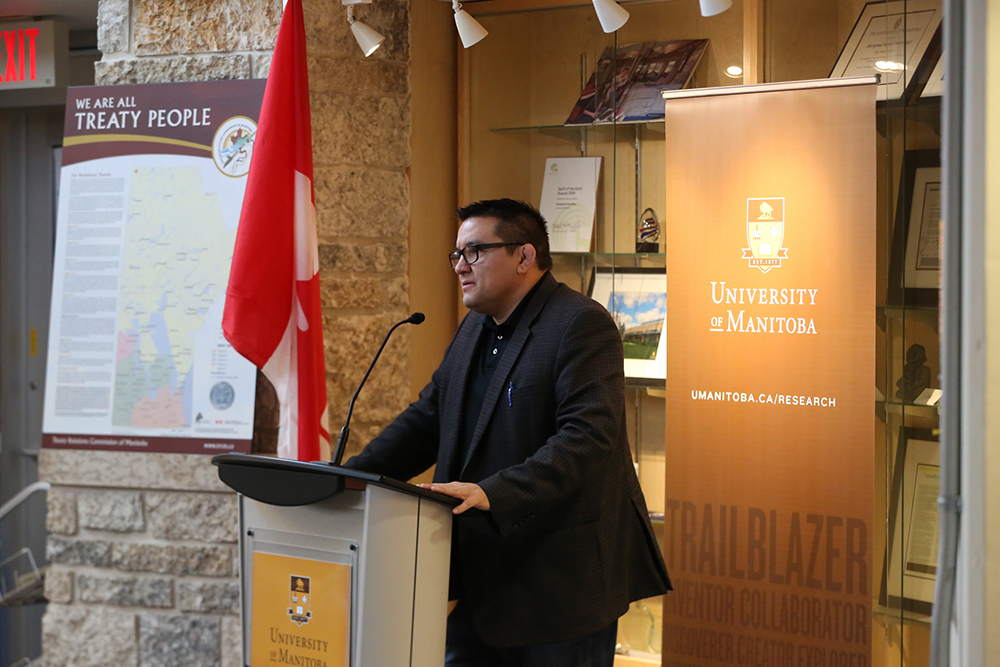
Frank Deer
Helping Canadian schools support Indigenous language learning
The language we speak influences how we see the world. Its expressions and nuances bear cultural and historical significance. To lose our language is to lose a piece of our identity.
That’s exactly what Indigenous communities across Canada are trying to prevent from happening for their people.
“Many Indigenous people in Canada are recognizing and affirming the importance of language,” said Dr. Frank Deer, Canada Research Chair in Indigenous Education and associate professor at the University of Manitoba. “My research looks at how language education programming can support the transmission of languages where there are, in many cases, precious few speakers.”
Preserving language is a complex challenge
Growing up in Kahnawake, a Kanienke’haka community south of Montréal, Deer was enrolled in one of Canada’s first Indigenous language immersion programs. That experience—as well as his later work as a classroom teacher—helped him realize the importance of language for First Nations communities.
Today, he’s leading a number of research projects that explore how Canada’s schools can support the preservation of Indigenous languages. One focuses on the administrative dimension: where and how school administrators, teachers and community members are making Indigenous language part of the educational experience. Another looks at how regional dialects (and non-trivial differences in the meanings of certain words) can influence community consultations and program development, governance and delivery.
While it’s still early days for these projects, one initial finding is that schools wanting to develop Indigenous language programming often can’t find qualified, fluent teachers. That’s prompted some schools to invest in building their own capacity—helping staff learn the languages needed for their programs. Deer hopes a successful model will emerge that schools can look to for inspiration.
Furthering reconciliation
Deer plans to bring his research directly to Canada’s public school districts, many of which are hearing from their communities that Indigenous subject matter and language are important. His research also has implications for Canada’s fulfilment of the calls to action in the 2015 Truth and Reconciliation Commission report.
“Those calls to action offer a blueprint for how Canadians can become more unified in confronting Canada’s unfortunate history with Indigenous peoples,” said Deer. “That includes a period where language and culture were deliberately oppressed, so language is something we need to look at very seriously if we wish to move forward in the journey toward reconciliation.”
To learn more about Frank Deer’s work visit frankdeer.net or follow him on Twitter @frank_deer
This article was originally published on the Social Sciences and Humanities Research Council website and is republished here with permission.
Research at the University of Manitoba is partially supported by funding from the Government of Canada Research Support Fund.






